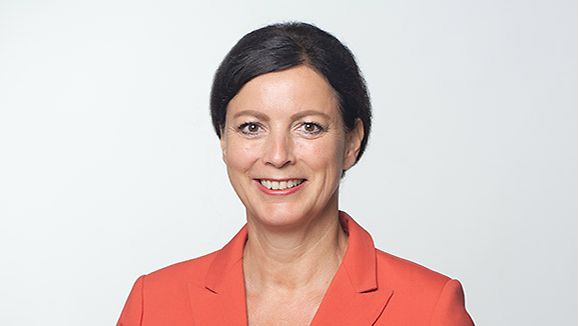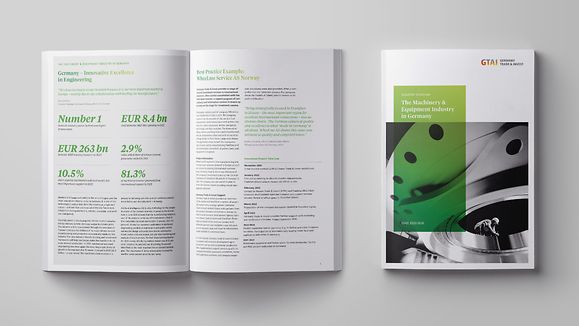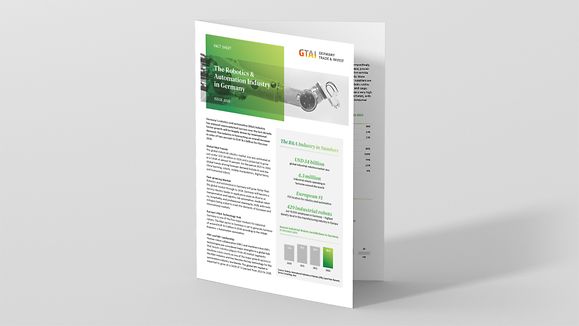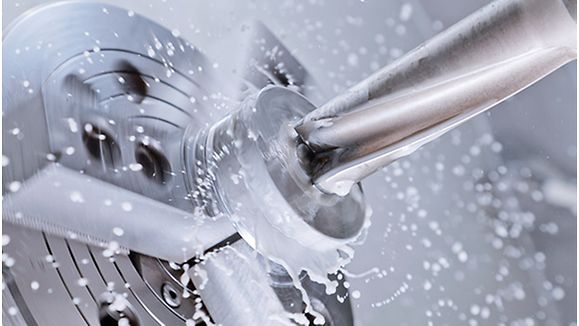Machinery & Equipment
Machinery and Equipment News
Germany's machinery and equipment trade fairs have made a welcome return after a two-year hiatus. Major innovations are taking place in automation and robotics while Siemens secured its biggest ever deal.
Aug 29, 2022
- LogiMAT 2022 a post-pandemic success
- Berlin AI start-up receives VC investment boost to automation plans
- Neura Robotics plans to mix up cognitive robot market
- Berlin start-up makes robots for the construction site
- Topping-out ceremony at NExT Factory in Velden
- Producing concrete from a 3D printer
- Siemens secures EUR 8.1 billion Egypt rail contract
LogiMAT 2022 a post-pandemic success
More than 1,500 exhibitors – including almost 400 first-time exhibitors – from 39 countries took part in this year’s LogiMAT trade fair in June. The international trade show for intralogistics solutions and process management returned to the fray after an almost 40-month long pandemic-induced hiatus. Around 50 thousand visitors took the opportunity to discover the latest trends and developments in the intralogistics sector. Germany Trade & Invest was also in attendance at this year’s event where investment experts Peggy Görlitz (robotics) and David Chasdi (logistics) successfully acquired a number of new investment projects as well as meeting up with return investors to Germany including Australia’s MantaMESH.
Berlin AI start-up receives VC investment boost to automation plans
Berlin-based start-up Micropsi Industries has raised USD 30 million venture capital funding to expand its intelligent robot control business. The company plans to use the injection of investment to develop its AI automation solution. The Mirai solution allows industrial robots to learn new tasks from humans beyond the repetitive tasks they mostly carry out. The trained robots will be able to recognize unsorted parts in boxes, grab them and place them in machines – objects no longer have to be ready at fixed positions for the gripper arms to grab them. This will allow robots to also take on tasks still done by hand in a range of scenarios including the automotive and household appliances production sectors.
Neura Robotics plans to mix up cognitive robot market
This year’s Automatica in Munich saw Metzingen robotics specialist Neura Robotics give a world premiere to an intelligent multi-purpose robot for use in industrial and commercial environments. The company has already established itself as a cognitive robotics leader through its MAiRA product – the first commercially available cognitive robot. The company also showcased its new AI training hub to quickly reach new objects to robot fleets as well as a new leaner MAiRA variant. The company sees the domestic front as the future for cognitive robots, with the household market potentially representing the most lucrative market in the future. “According to Neura Robotics CEO David Reger, the household market is the one with the most potential for cognitive robots, that’s the smartphone market for robot manufacturers.”
Berlin start-up makes robots for the construction site
A Fraunhofer-Institut spin-off start-up plans to offer robot solutions for the construction sector. Conbotics is currently developing a “painting robot” for interiors that is able to paint uniform surfaces. The robots, designed to support construction workers on site, will be rented by square meter performance once development is successfully completed, with long-term plans to enter into a selling business model.
Topping-out ceremony at NExT Factory in Velden
Bavarian Prime Minister Dr. Markus Söder was in attendance to preside over the topping-out cernemony for Schaltau’s new EUR 50 million facility in Velden, Bavaria. Production is scheduled to begin at the state-of the-art, fully automated and carbon dioxide-free factory in October. Schaltau is an internationally leading supplier of safety-relevant electromechanical components for the railway industry and the new energy/new industry and electric mobility markets. The “NExT Factory” will see Schaltau increase production capacity fivefold once operational.
Producing concrete from a 3D printer
A Schleswig-Holstein start-up is seeking to revolutionize construction using 3D printing technologies to produce concrete. Aeditive is developing 3D printing solutions for moldless precast manufacturing, with plans afoot for a production plant in the Black Forest region. Over one thousand components are being assembled at the site in Schramberg. The partnership with Glatthaar Starwalls sees concrete sprayed in layers, thereby dispensing with the lengthy formwork required for steel grids. Greater efficiencies are also produced with the quantity of material used reduced where cavities can be accounted for by the concrete 3D printer. Aeditive believes that 3D printing techniques could increase productivity fivefold. The solution is being targeted at construction companies currently struggling to secure skilled labor in the construction sector.
Siemens secures EUR 8.1 billion Egypt rail contract
Industry group Siemens has reported the largest order in its history, securing an EUR 8.1 billion deal to build a high-speed train system for Egypt. Together with two partners, Siemens Mobility will build a 2,000-kilometer network for high-speed trains. As part of the deal, Siemens will supply 41 high-speed trains, 94 regional trains and 41 freight locomotives. Rail infrastructure, eight operating and freight stations as well as a 15-year maintenance agreement.



